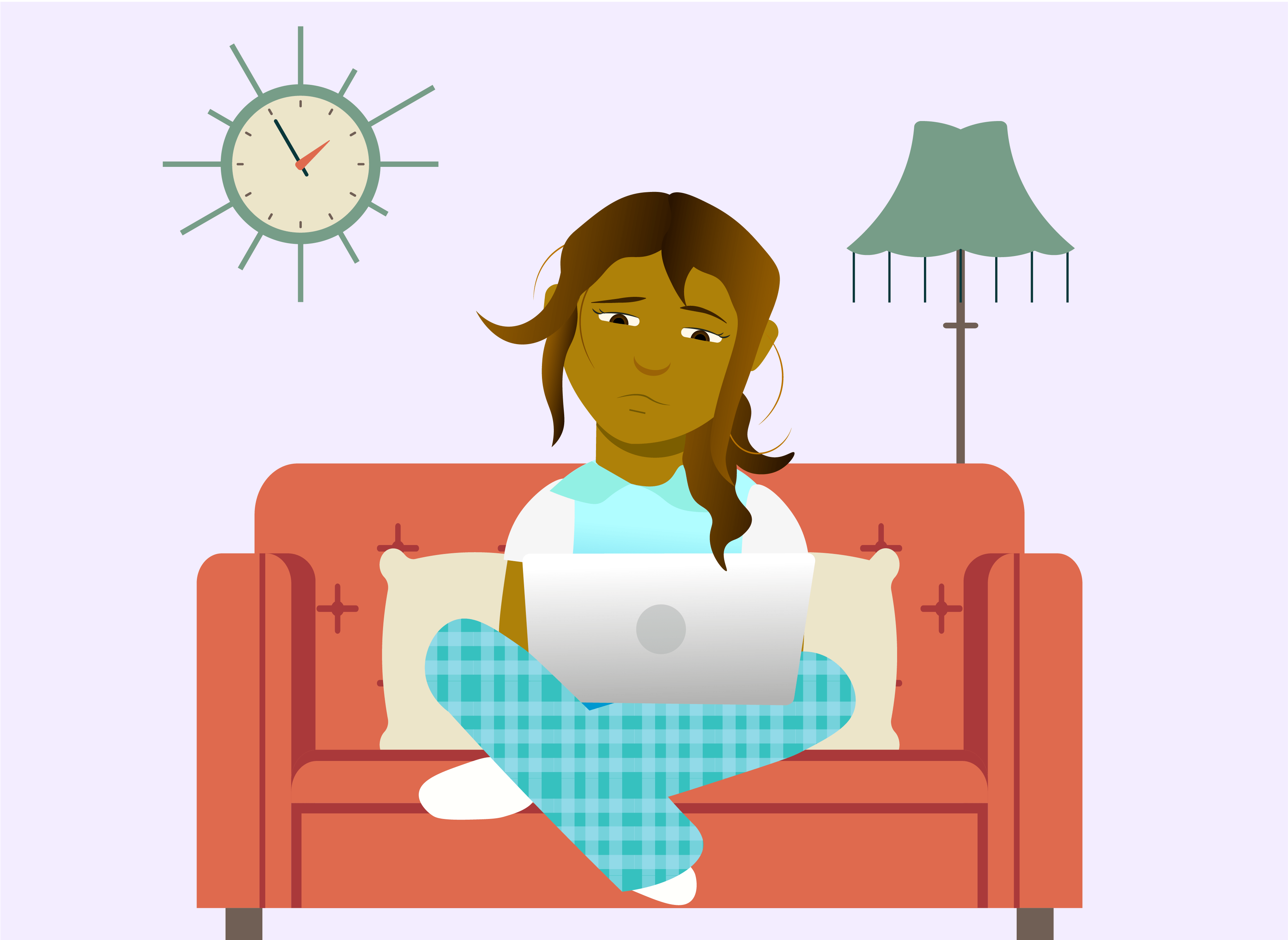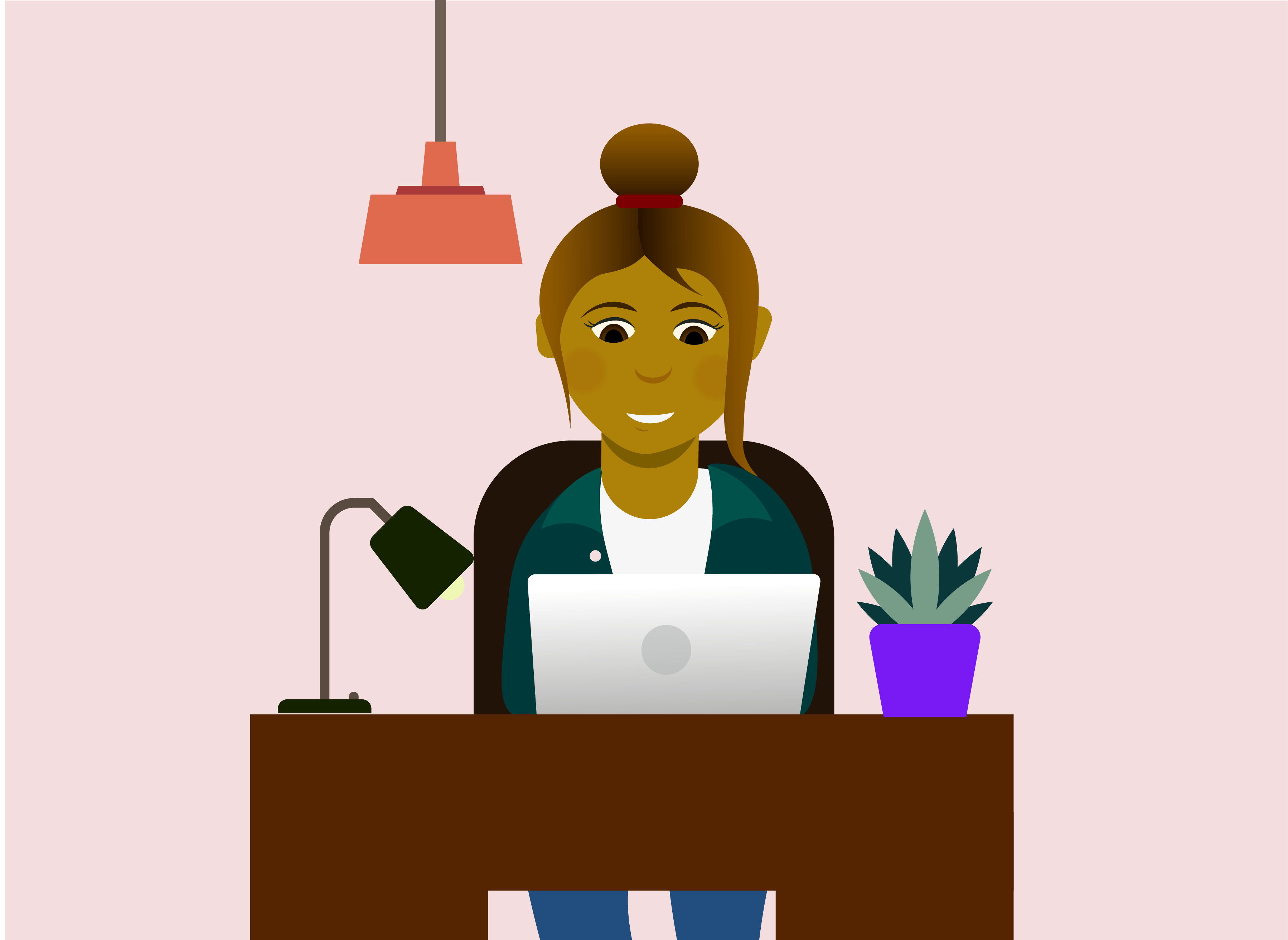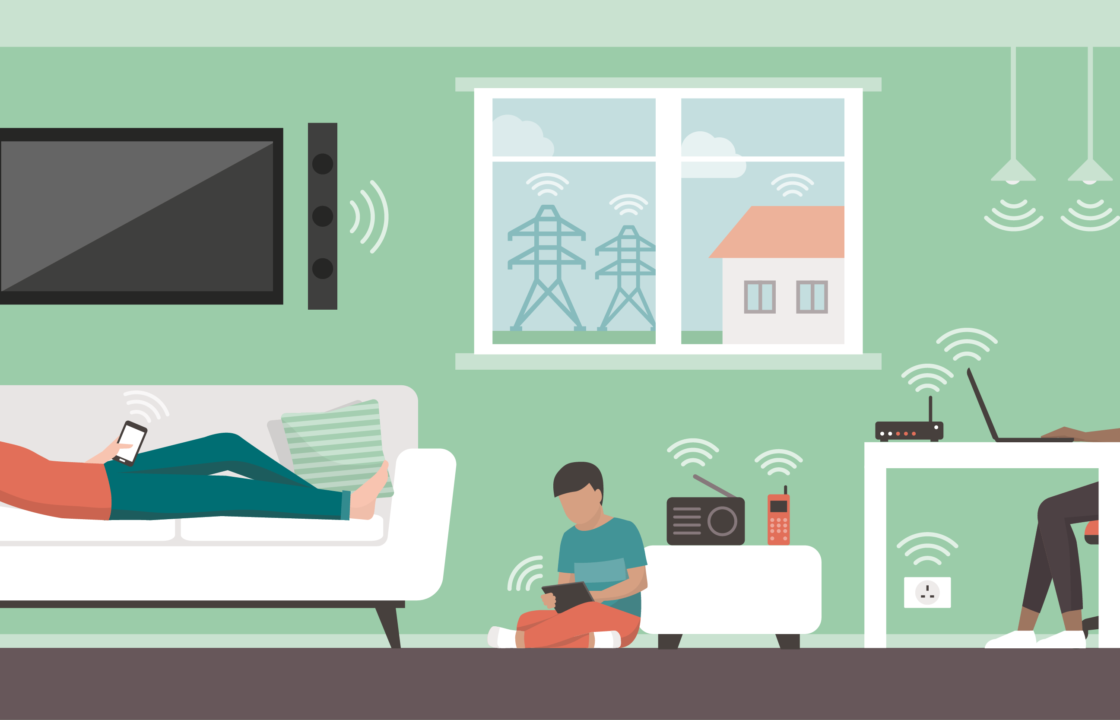
With today’s advancements in technology, we have become more flexible in our working lives. We often work from home, on our mobiles, work outdoors, or even at that lovely coffee shop down the road. However, the shift from traditional office-based working environments comes with its challenges.
Many of us hear ‘work from home’ and associate it with staying in pyjamas, not starting any work until halfway through the day, and procrastinating or giving in to distractions (such as organizing our sock drawer!) This might sound nice, but these unhealthy habits can lead to unproductivity, lack of motivation, and falling behind on deadlines. Many people even confess that their hygiene deteriorates due to the little need to get dressed or washed. In turn, these factors can negatively impact our physical and mental health.
We’ve put together seven useful tips on how to effectively work from home, to help you achieve a balanced, happy and productive work life.
1. Work from home, but stick to your schedule!
Those who work shifts from an office, will start and finish at a particular time. This creates a sense of routine – and our brains work best with routines. They give us indications of when we need to wake up, feel alert, start focusing, and switch off!
We sometimes associate working from home with the opportunity to stumble out of bed at the last minute. In an unprepared fluster, we turn on the computer and muddle through the morning. This can be detrimental to productivity as you don’t necessarily have enough time to boot yourself up into work mode.
To help stick to schedule – set yourself a morning alarm as though you were going into the office. Leave yourself enough time to shower, have breakfast and get dressed as if you are going to leave the house. This gives you enough time to be prepared both physically and mentally. Also, allocating yourself regular rest breaks away from your screen, and a set meal break will help you split up your working day. If you maintain the structure you would in an office, it helps differentiate and improve your home and work-life balance.
2. What should you wear to work from home?
Many of us would agree that its much more comfortable staying in our PJs or loungewear to work from home – after all, who wouldn’t you want to be in their comfiest clothes when they’re at home all day!? However, to help mentally and physically prepare for the day ahead, getting dressed for work can really help kick-start your day the right way.
It’s a great idea to get ready and dressed in the morning by following your usual routine – even if you choose casual attire. This helps trick our brains into thinking that we are leaving the house. The physical act of preparing ourselves for the day not only helps us feel more awake and alert at the start of the day, but it also helps us feel more motivated, organised and overall results in better productivity.


3. Have a dedicated workspace to work from:
Creating a workspace can help us to mentally differentiate our work and personal space, creating a better balance. Its a good idea to assign different zones for different activities in your home. For instance, we mentally associate our bedrooms with a place of relaxation as this is where we sleep. Working from the comfort of your bed might seem like a great idea, but it can affect your focus and make you feel more tired. Besides, you don’t want to spend your day and night confined to the same room!
Set yourself up in a light and airy space where you can shut off from the rest of the house and create an office-from-home. If you don’t necessarily have an office or study, try to work at a desk or table with a comfortable chair. Sitting comfortably not only helps you maintain a good posture but also helps you stay in work mode.
4. Utilise online communication tools:
Working from home over a long period of time may sometimes result in feelings of isolation and disconnection. Naturally, we are social creatures so being in the workplace and around colleagues can help you maintain your social needs. Too much time away from others may lead you to become introverted and can also impact your mental health.
Make sure you are active in socializing with your colleagues throughout the day by using messaging apps such as Microsoft Teams, Slack, etc. Nurturing your work and personal relationships helps maintain communication, and as a result, helps you work more collaboratively. So, join those Zoom calls, use FaceTime, and stay engaged!
5. Take your breaks when working from home!
Most workplaces will assign a lunchtime and two short breaktimes. In the office you probably couldn’t wait to take these, but at home, we may feel inclined not to.
It’s important to avoid working through your breaks and step away from your screen to give your eyes and mind a break.
You can remind yourself to take well-deserved breaks by setting alarms on your phone or PC. Ensure that you take your full break and that its spent away from your workspace. If possible, go outside, stretch your legs, and treat yourself to a change of scenery. Fresh air and natural light will make you feel great after staring at a screen for a long period of time and help enrich your mind.
6. Have a weekly plan:
Many of us who have worked from home know how easy it is to get distracted. You might find yourself going to make your 100th cup of tea for the day to find yourself doing all of your washing-up too! Routine and structure are habits we tend to lose when working in the comfort of our own homes.
One way to tackle this, is by setting a personal weekly plan or schedule. Creating a list of all the tasks that need completing, along with deadlines that you need to meet – you create a sense of direction and structure that helps manage your time better. Additionally, you’ll feel a sense of achievement each time you complete and check off a task!
7. Log out on time!
Too much screen time is not good for you but it’s easy for you to lose track of time when working in the comfort of your own home. Sometimes, you might find yourself working past your log-out time without even realising!
At the end of your working day – log out and turn off your PC as you would do if you were working from the office. Take yourself away from the area or room that you work from home in, and do something to mark the end of the working day. This could be something as simple as preparing for a workout or cooking dinner for the evening. You might even choose to engage in a new hobby! Its important to allow yourself to disconnect from a working state of mind, and wind down after a hard day’s work.
Overall, working from home might sound like the perfect scenario to many of us, but it’s crucial that we differentiate between work life and personal life. We hope these tips help you find the right balance to work from home more effectively and happily. If you have any suggestions that might have helped you transition to working from home – feel free to share them with us in the comments section!



